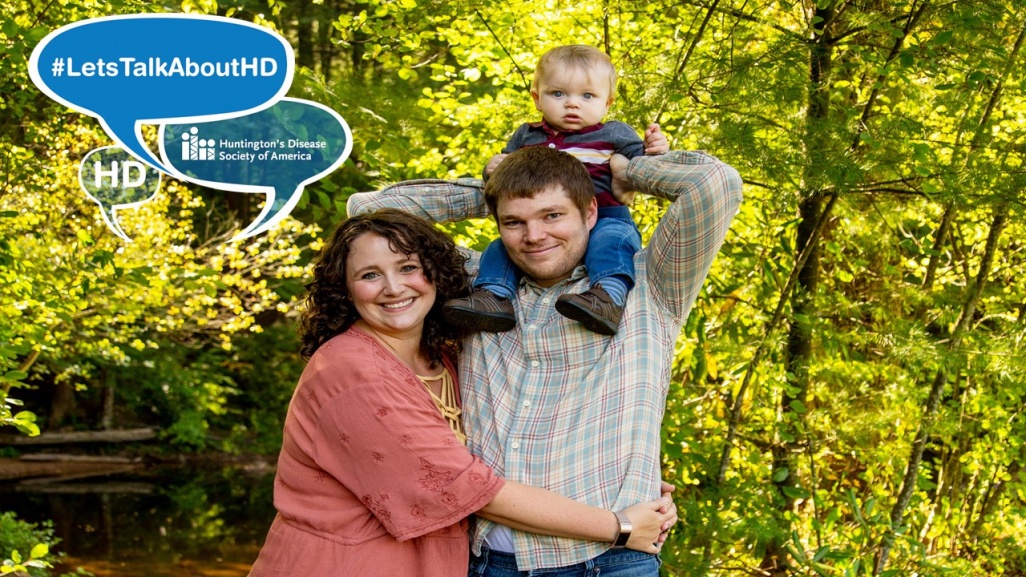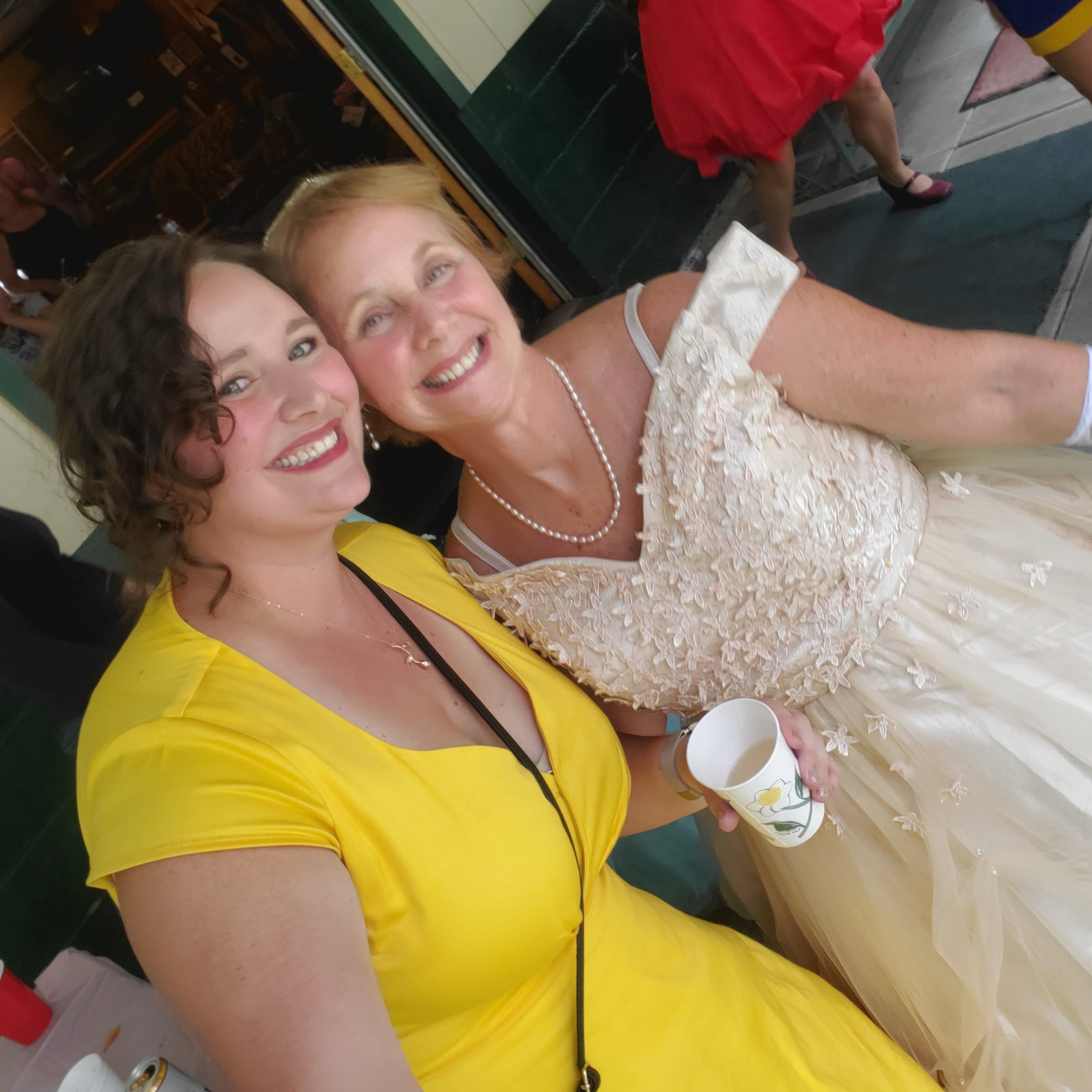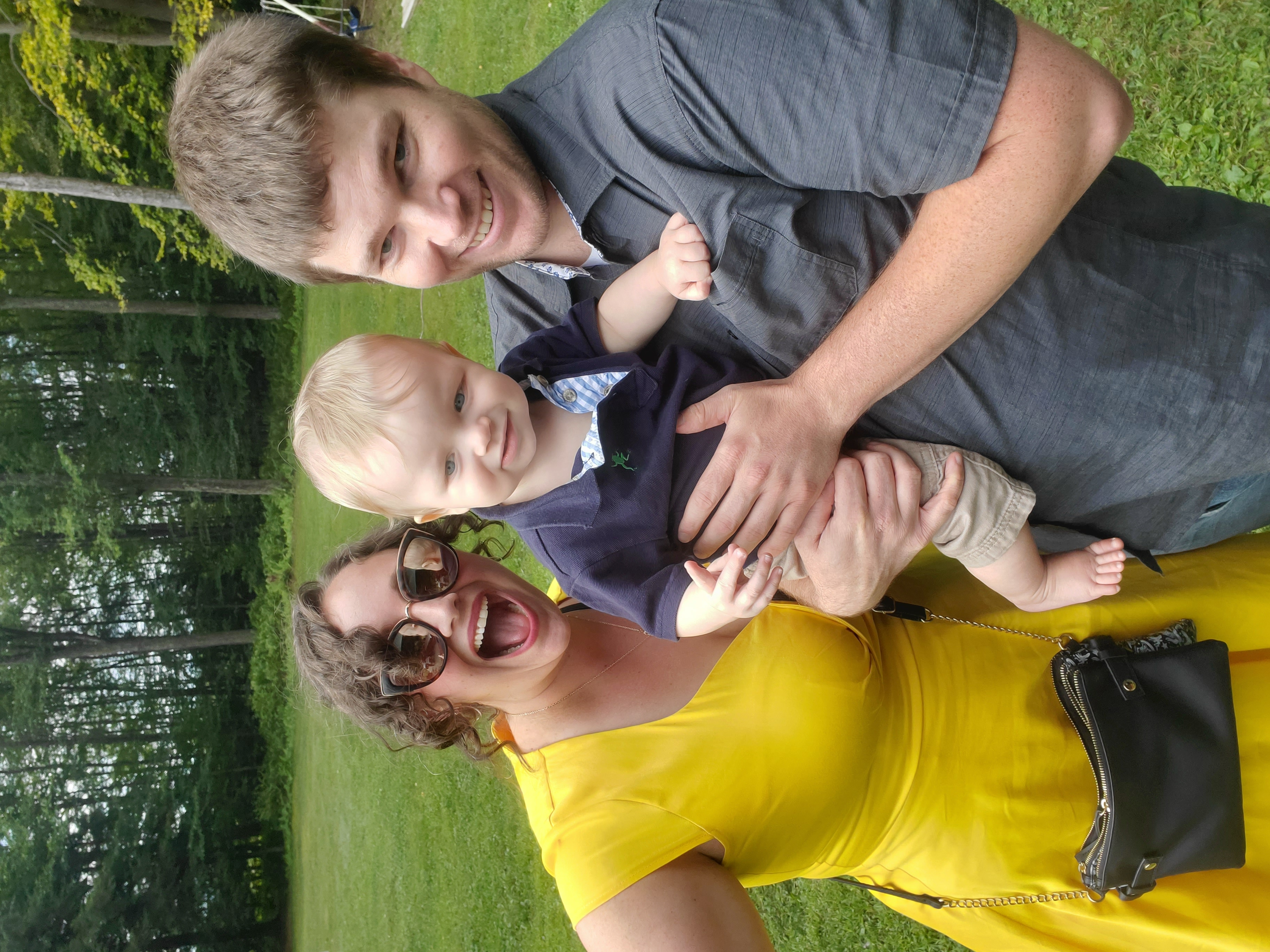
By Matthew Santamaria (msantamaria@hdsa.org)
A few years ago, Pennsylvania resident Mary Bowers first learned about Huntington’s disease (HD). This is a fatal genetic disorder that causes the progressive breakdown of nerve cells in the brain. It deteriorates a person’s physical and mental abilities during their prime working years and has no cure.
Mary’s mother & aunt tested positive for the gene that causes HD. Mary and her three siblings were now at risk for HD. Every child of a parent with HD has a 50/50 chance of inheriting the faulty gene.

“My great-aunt didn’t fully develop the disease until she was about 60 and 70-years-old,” Mary explains.” My grandmother died in her 60s without showing definitive signs; my aunt only got diagnosed in her 60s; and my mom is now 60-years-old with just the beginning of the mental and emotional signs, such as memory problems.”
The symptoms of HD are described as having ALS, Parkinson’s and Alzheimer’s – simultaneously. Symptoms include personality changes, mood swings, depression, forgetfulness, impaired judgement, unsteady gait, involuntary movements, slurred speech, difficulty in swallowing, and significant weight loss.
“Each of my siblings has multiple children already,” said Mary. “When my mom got tested, she said she did so mostly for us. We all wanted to know if there was a risk, but I was the only one with extra major decisions to make as my husband and I had finally decided to attempt to grow up and start a family with two legs instead of four (at that time, we had three dogs and two lizards).”
After having her first child and things were leveling out in her life, Mary thought it was the perfect time to get tested for HD.
The decision to get genetically tested is difficult to make. Each year, 5-10% are tested. It is never the right or wrong decision to be tested. There are people that see no benefit in knowing that they will develop the disease while others want to know in order to make informed choices about their future. It can take up to several weeks to receive your results from the genetic testing center.
“I felt mentally ready for it and knew that it would continue to eat away at me if I didn’t know for sure,” Mary explains. “So, in the beginning of July, I stuck my arm out and waited. Just FYI, do not get a blood draw before a holiday weekend – that pushed my results back a few days. Not a lot, but enough to make me crazy. I just needed to know!”
Then, Mary’s results came in with her mother and baby by her side. Mary would find out that she tested positive.
“My body got that weird feeling that happens when you miss a step on stairs or when you are falling asleep and you jerk awake,” said Mary. “Momentary falling, then I just wanted to leave. My mom and my baby were crying, but I was numb.”
For a while, Mary was angry at the results.
“It took a while to come around after that,” Mary explains. “I was angry at God, annoyed, and nervous about decisions about having more kids, and just tired. I didn’t want to say much about it initially because I was irritated hearing things, I already knew but everyone I know and love has been so supportive and kind.”
After the shockwaves went away, Mary found that talking about what she was going through helped lighten the weight. Mary and her husband, Paul, want to continue to grow their family with the hope of a cure by the time that Mary needs it. Mary and her family plan to sign up for Enroll HD, worldwide observational study for HD families.

“On my mom’s side of my family, we sort of have a darker sense of humor,” said Mary. “So, while this is a sensitive subject for many, we tend to develop a sense of humor to each other about it! If the only options are whether to laugh or cry, we’re going to laugh while we’re flipping the bird.”
###
Huntington’s disease (HD) is a fatal genetic disorder that causes the progressive breakdown of nerve cells in the brain. It deteriorates a person’s physical and mental abilities during their prime working years and has no cure. Every child of a parent with HD has a 50/50 chance of inheriting the faulty gene. Today, there are approximately 41,000 symptomatic Americans and more than 200,000 at-risk of inheriting the disease. The symptoms of HD are described as having ALS, Parkinson’s and Alzheimer’s – simultaneously.
The Huntington’s Disease Society of America is the premier nonprofit organization dedicated to improving the lives of everyone affected by HD. From community services and education to advocacy and research, HDSA is the world’s leader in providing help for today and hope for tomorrow for people with HD and their families.
HDSA was founded in 1967 by Marjorie Guthrie, the wife of legendary folk singer Woody Guthrie. Woody died from HD complications when he was only 55 years old, but the Guthrie family legacy lives on at HDSA to this day.
To learn more about Huntington’s disease and the work of the Huntington’s Disease Society of America, visit www.HDSA.org or call 1(800)345-HDSA.
This is a story featuring a personal experience with Huntington’s disease. If you would like to have your story told please contact Matthew Santamaria at msantamaria@hdsa.org
A few years ago, Pennsylvania resident Mary Bowers first learned about Huntington’s disease (HD). This is a fatal genetic disorder that causes the progressive breakdown of nerve cells in the brain. It deteriorates a person’s physical and mental abilities during their prime working years and has no cure.
Mary’s mother & aunt tested positive for the gene that causes HD. Mary and her three siblings were now at risk for HD. Every child of a parent with HD has a 50/50 chance of inheriting the faulty gene.

“My great-aunt didn’t fully develop the disease until she was about 60 and 70-years-old,” Mary explains.” My grandmother died in her 60s without showing definitive signs; my aunt only got diagnosed in her 60s; and my mom is now 60-years-old with just the beginning of the mental and emotional signs, such as memory problems.”
The symptoms of HD are described as having ALS, Parkinson’s and Alzheimer’s – simultaneously. Symptoms include personality changes, mood swings, depression, forgetfulness, impaired judgement, unsteady gait, involuntary movements, slurred speech, difficulty in swallowing, and significant weight loss.
“Each of my siblings has multiple children already,” said Mary. “When my mom got tested, she said she did so mostly for us. We all wanted to know if there was a risk, but I was the only one with extra major decisions to make as my husband and I had finally decided to attempt to grow up and start a family with two legs instead of four (at that time, we had three dogs and two lizards).”
After having her first child and things were leveling out in her life, Mary thought it was the perfect time to get tested for HD.
The decision to get genetically tested is difficult to make. Each year, 5-10% are tested. It is never the right or wrong decision to be tested. There are people that see no benefit in knowing that they will develop the disease while others want to know in order to make informed choices about their future. It can take up to several weeks to receive your results from the genetic testing center.
“I felt mentally ready for it and knew that it would continue to eat away at me if I didn’t know for sure,” Mary explains. “So, in the beginning of July, I stuck my arm out and waited. Just FYI, do not get a blood draw before a holiday weekend – that pushed my results back a few days. Not a lot, but enough to make me crazy. I just needed to know!”
Then, Mary’s results came in with her mother and baby by her side. Mary would find out that she tested positive.
“My body got that weird feeling that happens when you miss a step on stairs or when you are falling asleep and you jerk awake,” said Mary. “Momentary falling, then I just wanted to leave. My mom and my baby were crying, but I was numb.”
For a while, Mary was angry at the results.
“It took a while to come around after that,” Mary explains. “I was angry at God, annoyed, and nervous about decisions about having more kids, and just tired. I didn’t want to say much about it initially because I was irritated hearing things, I already knew but everyone I know and love has been so supportive and kind.”
After the shockwaves went away, Mary found that talking about what she was going through helped lighten the weight. Mary and her husband, Paul, want to continue to grow their family with the hope of a cure by the time that Mary needs it. Mary and her family plan to sign up for Enroll HD, worldwide observational study for HD families.

“On my mom’s side of my family, we sort of have a darker sense of humor,” said Mary. “So, while this is a sensitive subject for many, we tend to develop a sense of humor to each other about it! If the only options are whether to laugh or cry, we’re going to laugh while we’re flipping the bird.”
Mary has a message for the HD Community:
“Keep hope but not beat yourself up if you falter. It is ok to be angry or depressed. Being hopeful and optimistic doesn’t mean smiling all the time, it just means believing things will get better.”
“Keep hope but not beat yourself up if you falter. It is ok to be angry or depressed. Being hopeful and optimistic doesn’t mean smiling all the time, it just means believing things will get better.”
###
Huntington’s disease (HD) is a fatal genetic disorder that causes the progressive breakdown of nerve cells in the brain. It deteriorates a person’s physical and mental abilities during their prime working years and has no cure. Every child of a parent with HD has a 50/50 chance of inheriting the faulty gene. Today, there are approximately 41,000 symptomatic Americans and more than 200,000 at-risk of inheriting the disease. The symptoms of HD are described as having ALS, Parkinson’s and Alzheimer’s – simultaneously.
The Huntington’s Disease Society of America is the premier nonprofit organization dedicated to improving the lives of everyone affected by HD. From community services and education to advocacy and research, HDSA is the world’s leader in providing help for today and hope for tomorrow for people with HD and their families.
HDSA was founded in 1967 by Marjorie Guthrie, the wife of legendary folk singer Woody Guthrie. Woody died from HD complications when he was only 55 years old, but the Guthrie family legacy lives on at HDSA to this day.
To learn more about Huntington’s disease and the work of the Huntington’s Disease Society of America, visit www.HDSA.org or call 1(800)345-HDSA.
This is a story featuring a personal experience with Huntington’s disease. If you would like to have your story told please contact Matthew Santamaria at msantamaria@hdsa.org
